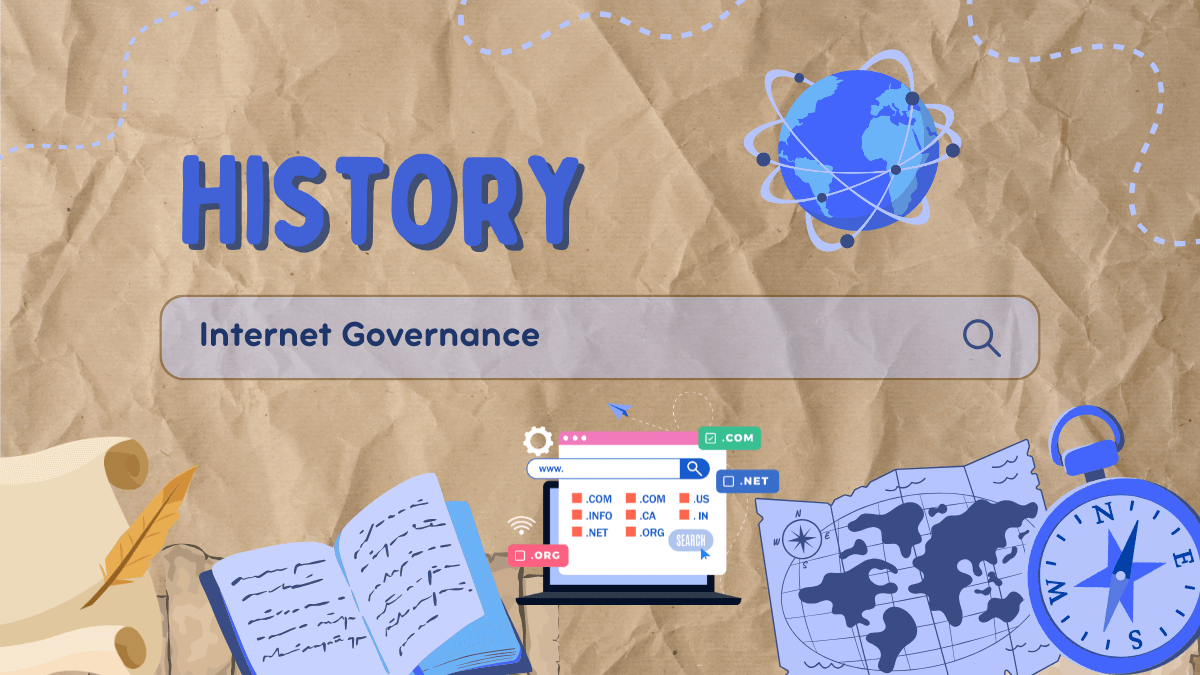The internet today has become an indispensable part of our life which connects over 5.4 billion people— approximately 67% of the world’s population by the end of 2023. Ideally every sector leverages the opportunities presented by Internet Technology. However, the governance of the internet is a complex topic that requires a bit of historical perspective for a holistic understanding. To grasp the concept of Internet governance, we must look back at the evolution of the internet itself. The modern internet is not a product of overnight innovation; rather, it has evolved from a legacy dating back to the 1960s, when the foundational concepts of today’s internet were established.Technical bodies such as the Internet Architecture Board, Internet Engineering Task Force (IETF), and Internet Society (ISOC) emerged to coordinate Internet protocols and standards development.
The story begins with an interesting story when the Soviet Union (Russia) launched Sputnik, the first artificial satellite in 1957. This event was shocking news for the U.S. government and it prompted them to invest in technological research aimed at maintaining its competitive edge in space exploration and military capabilities. This trigger led to the establishment of two major scientific research institutions: National Aeronautics and Space Administration (NASA) and Advanced Research Projects Agency (ARPA) In 1958, President Eisenhower authorized the creation of NASA and the ARPA under the Department of Defense, with ARPA receiving an initial budget of $520 million.
The first operational packet switching network was ARPANET, a project started with a budget of $1 million at ARPA, which is widely recognized as the birthplace of the internet. As ARPANET was developed in the late 1960s and early 1970s, it laid down critical protocols that are still the backbone of modern internet communication today. The transition from ARPANET to a more extensive network involved collaboration among various technological, academic and governmental entities, ultimately leading to a decentralized system that we now refer to as the internet.
The first three decades from 1960’s to 1980’s were more focused on development of fundamental technologies like TCP/IP and in the 1990’s Internet transitioned from a primarily government and academic tool to a commercial platform. The launch of the World Wide Web by Tim Berners-Lee in 1991 revolutionized access to information through web browsers, significantly increasing public engagement. This commercialization of the Internet led to the concerns and discussions about the governance of the Internet in 2000’s which led to the World Summit on the Information Society (WSIS) held in two phases from 2002 to 2005, it highlighted these issues on a global stage. The summit produced the Tunis Agenda, which emphasized a multistakeholder approach to Internet governance—recognizing that various stakeholders, including governments, private sector actors, civil society, and technical communities, must collaborate to address challenges effectively. Based on the Tunis agenda the Internet Governance Forum (IGF) was established in 2006 as a direct outcome of WSIS discussions, providing a platform for dialogue among stakeholders without binding decisions. This forum aims to address pressing issues related to Internet governance collaboratively.


